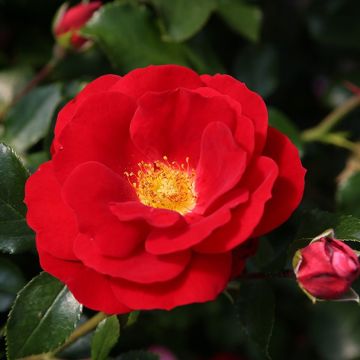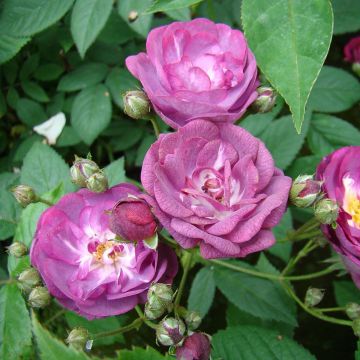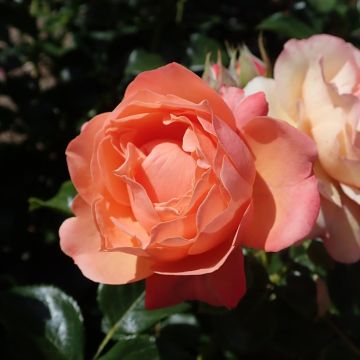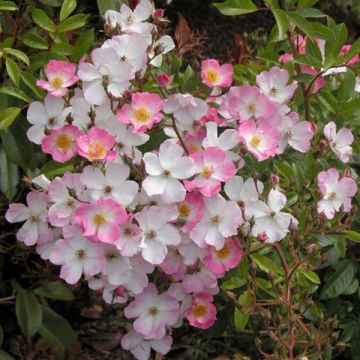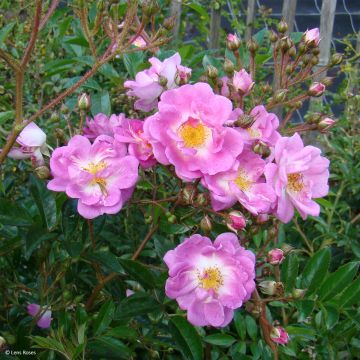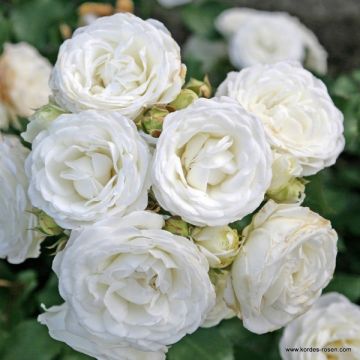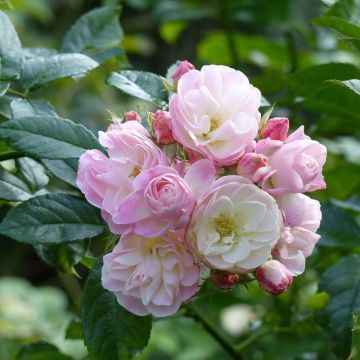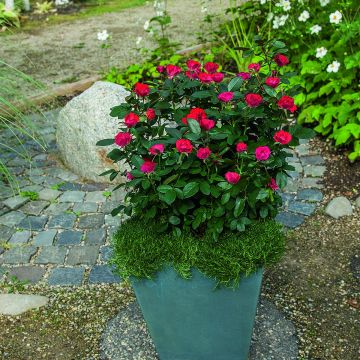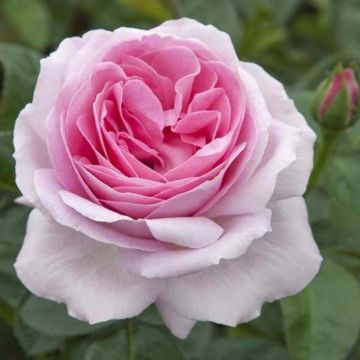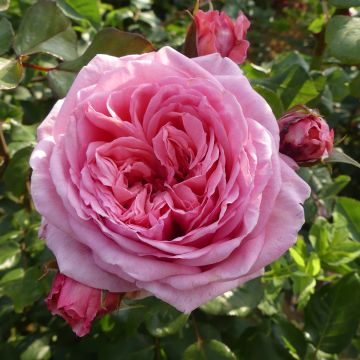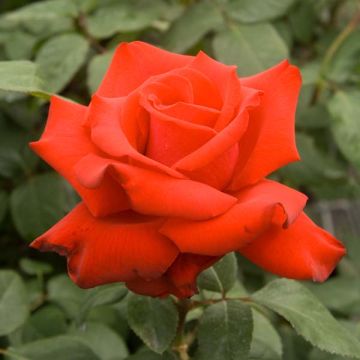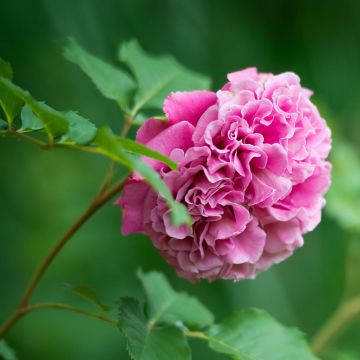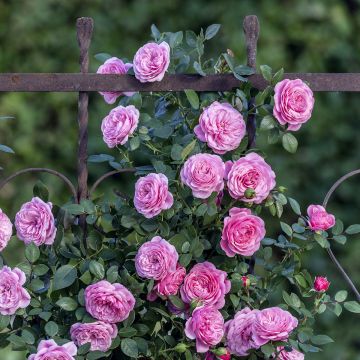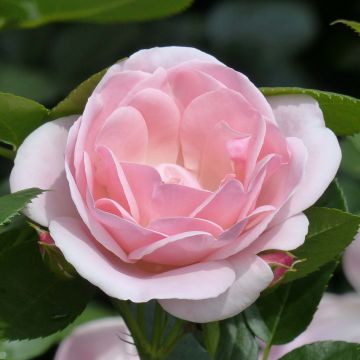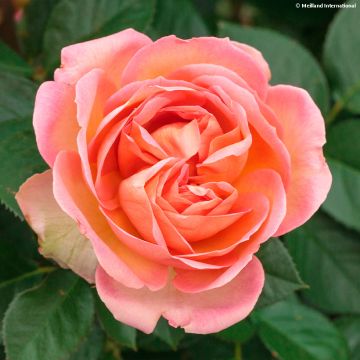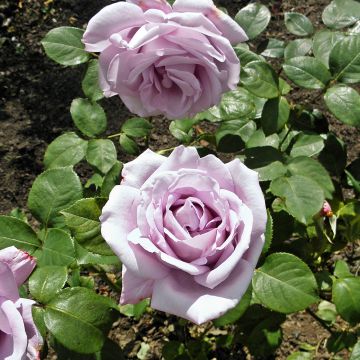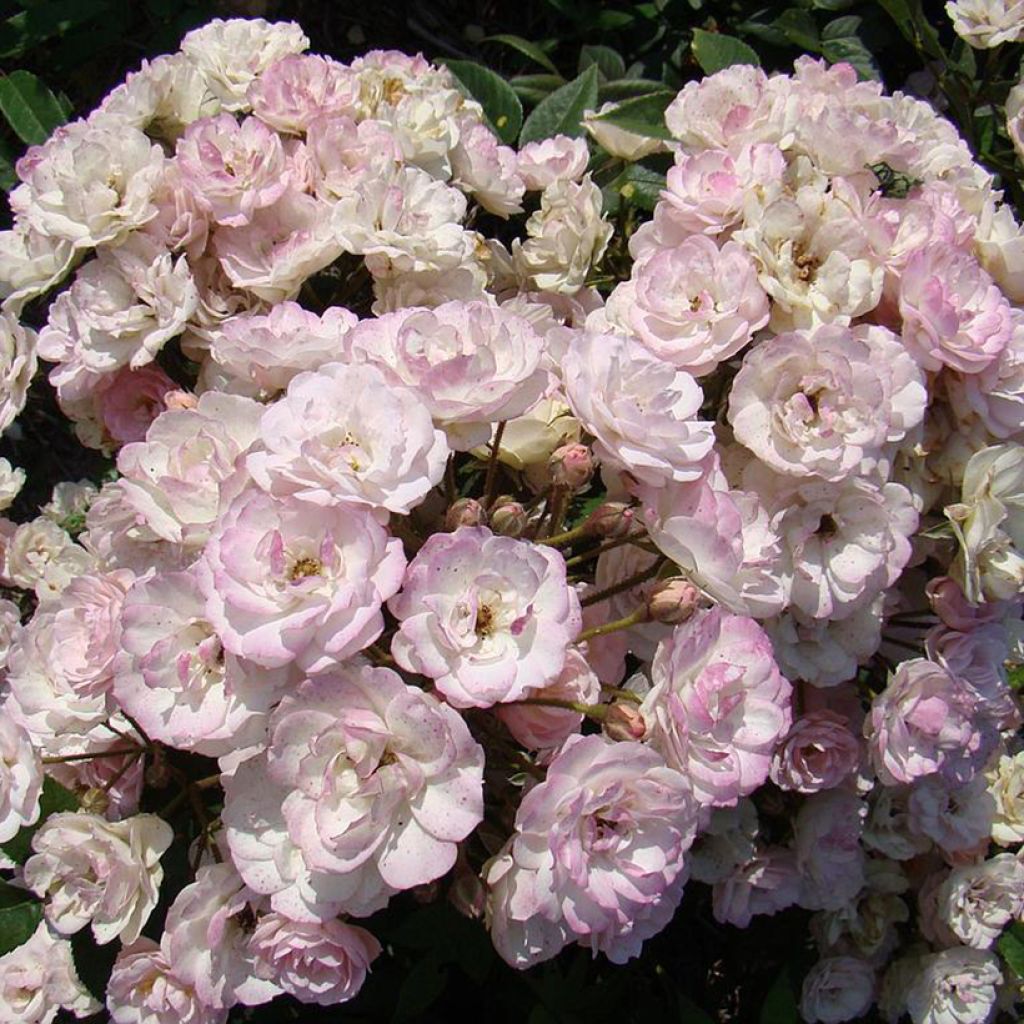

Rosa Petite de Terre Franche - Hybrid Musk rose
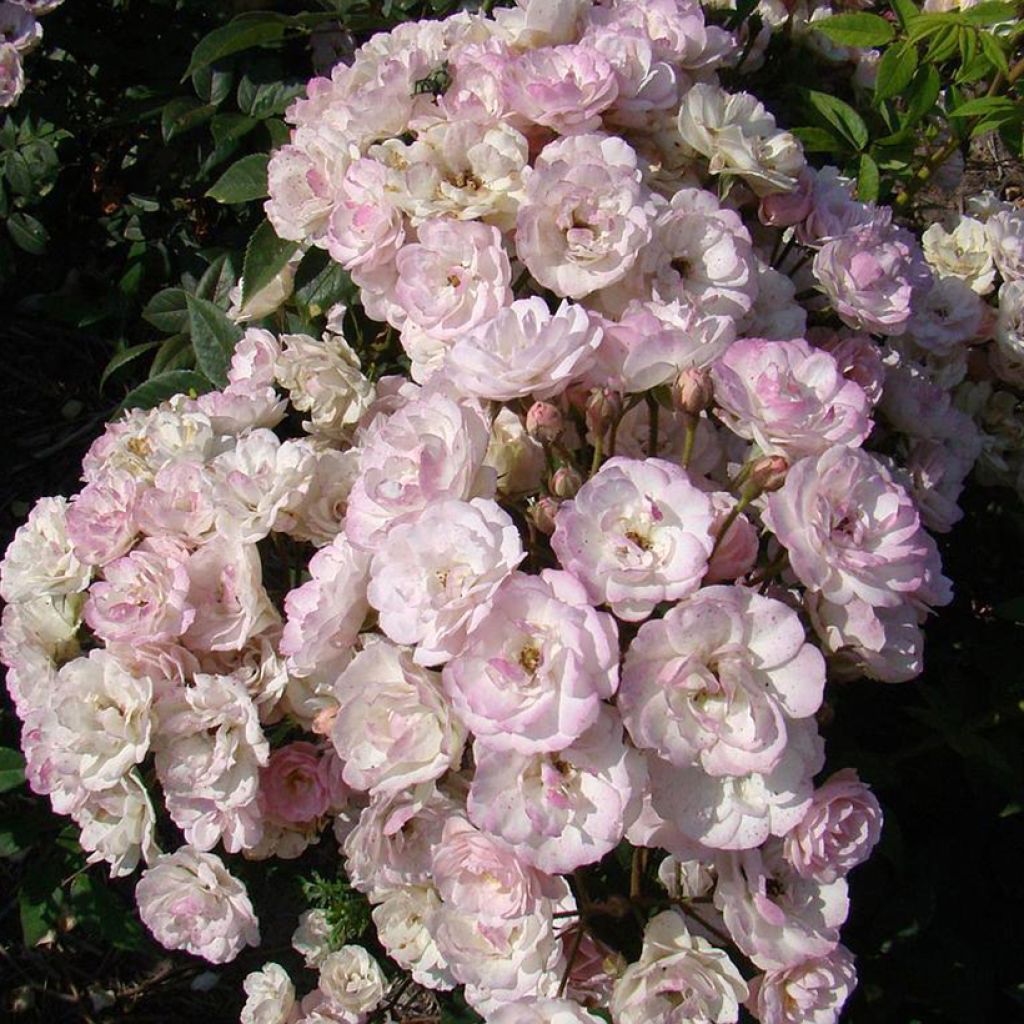

Rosa Petite de Terre Franche - Hybrid Musk rose


Rosa Petite de Terre Franche - Hybrid Musk rose
Rosa Petite de Terre Franche - Hybrid Musk rose
Rosa x moschata Petite de Terre Franche
Musk rose
This item cannot be shipped to the selected country
Delivery charge from €5.90
Delivery charge from €5.90
More information
Schedule delivery date,
and select date in basket
This plant carries a 24 months recovery warranty
More information
We guarantee the quality of our plants for a full growing cycle, and will replace at our expense any plant that fails to recover under normal climatic and planting conditions.
From €5.90 for pickup delivery and €6.90 for home delivery
Express home delivery from €8.90.
From €5.90 for pickup delivery and €6.90 for home delivery
Express home delivery from €8.90.
Does this plant fit my garden?
Set up your Plantfit profile →
Description
Rosa Petite de Terre Franche Hybrid Musk rose is a magnificent plant that has a place in every rose lover's garden. In June, this beautiful lax bush with its lush foliage is truly overwhelmed by clusters of small, semi-double flowers in shades of pink to white. If you remove faded blooms, the plant will bloom again 3 or 4 times until October. The flowers are long-lasting, and their fragrance diffuses in the garden on hot days. This highly disease-resistant rose also produces attractive hips and once established, it requires no watering. The vigorous plant develops in a very elegant manner and can be trained as a small climber.
The Petite de Terre Franche Rose is a variety bred by Ivan Louette (Lens Roses) in 1996. It is descended, among others, from the musk rose (Rosa x moschata), a spontaneous hybrid probably originating from Asia Minor or the Middle East. Like polyanthas and floribundas, roses in this family produce flowers in clusters, but their colours are more refined and they have a more flexible and graceful habit. 'Petite de Terre Franche' shows rapid and vigorous growth, with an upright, bushy, slightly trailing, spreading habit. When regularly pruned, this bush reaches about 1.50 m (5ft) high and 1.25 m (4ft) wide. However, the long thorny stems that emerge from the centre of the bush can reach up to 2.50 m (8ft) high. If left unpruned, it can grow up to 2.50 m (8ft) in all directions, or even 3 m (10ft). The leaves are divided into dark green leaflets with a bluish hue. They are generally free from diseases. The flowering begins in June, slightly later than most roses. It takes the form of large pyramidal clusters composed of numerous small, semi-double flowers, 4 cm (2in) in diameter. Their colour is a beautiful carmine pink that fades over time. The centre of the corollas offers its centre of golden stamens to bees and other pollinators quite late. The flowers are followed by numerous small fruits called hips, which turn reddish-orange when ripe. The fragrance is not produced by the flowers but by the floral buds, which are covered in small scent glands. The hardiness of this rose is estimated at -15 °C (5°F).
This magnificent Petite de Terre Franche shrub rose thrives in well-prepared soil and requires no pruning other than the removal of dead wood. Before planting, choose its location and how you will use it: as a large free-standing bush or as a small climber against a fence or house wall. Plant it in a flowered hedge with other botanical or heritage roses (Cornelia, Felicia, Bouquet parfait, Rosa complicata...), small lilacs (Syringa microphylla superba), mock oranges, flowering cherry trees, or Japanese quince. Also consider planting it with a viticella group clematis, which is also easy to grow.
Report an error about the product description
Rosa Petite de Terre Franche - Hybrid Musk rose in pictures
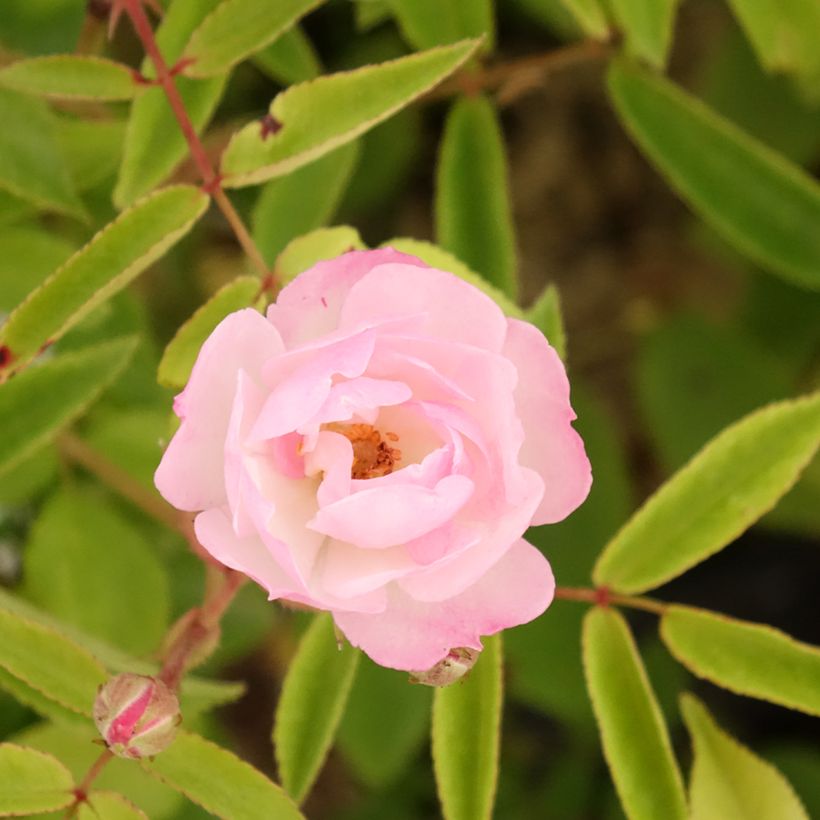

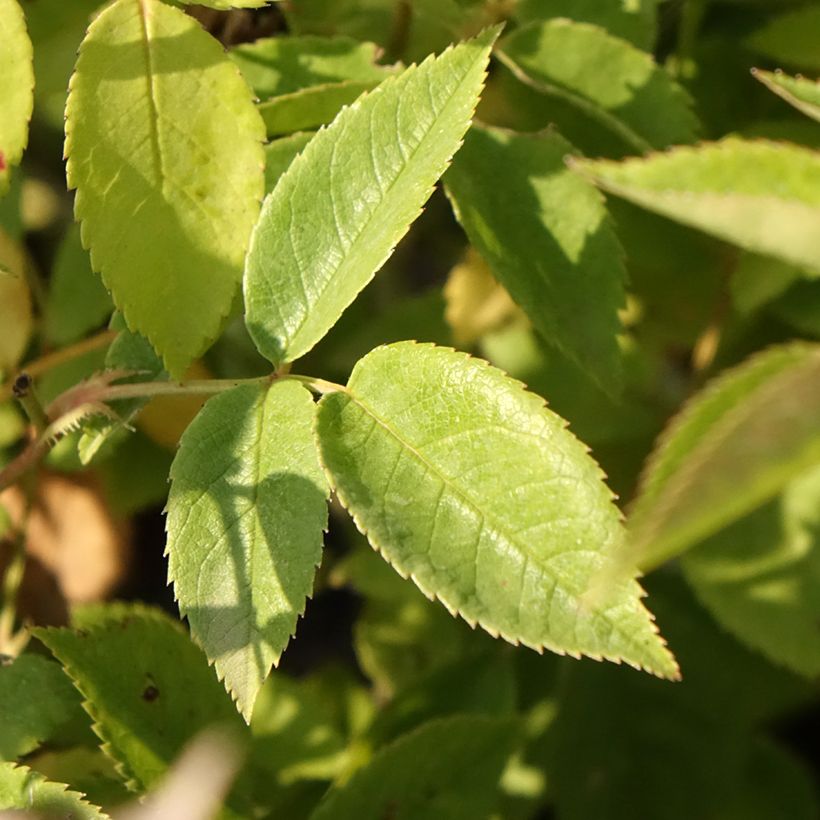

Plant habit
Flowering
Foliage
Botanical data
Rosa
x moschata
Petite de Terre Franche
Rosaceae
Musk rose
Cultivar or hybrid
Other Polyantha clustered Roses
Planting and care
The Petite de Terre Franche Rosebush can be planted in full sun, but it can tolerate partial shade in the hottest regions. It will adapt to any garden as long as the soil is well-prepared and sufficiently rich. To plant your rosebush, work the soil by breaking it up well and adding a base fertiliser, such as bonemeal, at the bottom of the planting hole. Water generously after planting to remove any air pockets then regularly for a few weeks to aid root growth. You will only need to prune to remove dead wood, but you can also lighten the centre of the bush by removing crossing branches. Deadhead regularly to stimulate the development of new buds.
To limit its growth, you can prune after each wave of flowering.
Rosebushes are often stained or unsightly at the end of summer, but this is not a problem for their development. These stains are not harmful to the rosebush; it is a natural phenomenon.
Planting period
Intended location
Care
-
, onOrder confirmed
Reply from on Promesse de fleurs
Roses by producer
Haven't found what you were looking for?
Hardiness is the lowest winter temperature a plant can endure without suffering serious damage or even dying. However, hardiness is affected by location (a sheltered area, such as a patio), protection (winter cover) and soil type (hardiness is improved by well-drained soil).

Photo Sharing Terms & Conditions
In order to encourage gardeners to interact and share their experiences, Promesse de fleurs offers various media enabling content to be uploaded onto its Site - in particular via the ‘Photo sharing’ module.
The User agrees to refrain from:
- Posting any content that is illegal, prejudicial, insulting, racist, inciteful to hatred, revisionist, contrary to public decency, that infringes on privacy or on the privacy rights of third parties, in particular the publicity rights of persons and goods, intellectual property rights, or the right to privacy.
- Submitting content on behalf of a third party;
- Impersonate the identity of a third party and/or publish any personal information about a third party;
In general, the User undertakes to refrain from any unethical behaviour.
All Content (in particular text, comments, files, images, photos, videos, creative works, etc.), which may be subject to property or intellectual property rights, image or other private rights, shall remain the property of the User, subject to the limited rights granted by the terms of the licence granted by Promesse de fleurs as stated below. Users are at liberty to publish or not to publish such Content on the Site, notably via the ‘Photo Sharing’ facility, and accept that this Content shall be made public and freely accessible, notably on the Internet.
Users further acknowledge, undertake to have ,and guarantee that they hold all necessary rights and permissions to publish such material on the Site, in particular with regard to the legislation in force pertaining to any privacy, property, intellectual property, image, or contractual rights, or rights of any other nature. By publishing such Content on the Site, Users acknowledge accepting full liability as publishers of the Content within the meaning of the law, and grant Promesse de fleurs, free of charge, an inclusive, worldwide licence for the said Content for the entire duration of its publication, including all reproduction, representation, up/downloading, displaying, performing, transmission, and storage rights.
Users also grant permission for their name to be linked to the Content and accept that this link may not always be made available.
By engaging in posting material, Users consent to their Content becoming automatically accessible on the Internet, in particular on other sites and/or blogs and/or web pages of the Promesse de fleurs site, including in particular social pages and the Promesse de fleurs catalogue.
Users may secure the removal of entrusted content free of charge by issuing a simple request via our contact form.
The flowering period indicated on our website applies to countries and regions located in USDA zone 8 (France, the United Kingdom, Ireland, the Netherlands, etc.)
It will vary according to where you live:
- In zones 9 to 10 (Italy, Spain, Greece, etc.), flowering will occur about 2 to 4 weeks earlier.
- In zones 6 to 7 (Germany, Poland, Slovenia, and lower mountainous regions), flowering will be delayed by 2 to 3 weeks.
- In zone 5 (Central Europe, Scandinavia), blooming will be delayed by 3 to 5 weeks.
In temperate climates, pruning of spring-flowering shrubs (forsythia, spireas, etc.) should be done just after flowering.
Pruning of summer-flowering shrubs (Indian Lilac, Perovskia, etc.) can be done in winter or spring.
In cold regions as well as with frost-sensitive plants, avoid pruning too early when severe frosts may still occur.
The planting period indicated on our website applies to countries and regions located in USDA zone 8 (France, United Kingdom, Ireland, Netherlands).
It will vary according to where you live:
- In Mediterranean zones (Marseille, Madrid, Milan, etc.), autumn and winter are the best planting periods.
- In continental zones (Strasbourg, Munich, Vienna, etc.), delay planting by 2 to 3 weeks in spring and bring it forward by 2 to 4 weeks in autumn.
- In mountainous regions (the Alps, Pyrenees, Carpathians, etc.), it is best to plant in late spring (May-June) or late summer (August-September).
The harvesting period indicated on our website applies to countries and regions in USDA zone 8 (France, England, Ireland, the Netherlands).
In colder areas (Scandinavia, Poland, Austria...) fruit and vegetable harvests are likely to be delayed by 3-4 weeks.
In warmer areas (Italy, Spain, Greece, etc.), harvesting will probably take place earlier, depending on weather conditions.
The sowing periods indicated on our website apply to countries and regions within USDA Zone 8 (France, UK, Ireland, Netherlands).
In colder areas (Scandinavia, Poland, Austria...), delay any outdoor sowing by 3-4 weeks, or sow under glass.
In warmer climes (Italy, Spain, Greece, etc.), bring outdoor sowing forward by a few weeks.

































